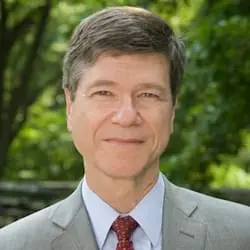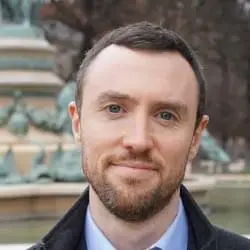More details
Since 2016, the Sustainable Development Report (SDR) has provided the most up-to-date data available to track and rank the performance of all UN member states on the SDGs. Eighty years after the creation of the UN system, the report also provides improved and updated measures to track countries' efforts to support UN-based multilateralism. In total, more than 200,000 individual data points are used to produce 200+ country and regional SDG profiles. This year's edition was authored by a group of independent experts at the SDG Transformation Center, an initiative of the SDSN
This year's SDR emphasizes the following eight key message:
-
Global commitment to the SDGs is strong: 190 out of 193 countries have presented national action plans for advancing sustainable development. A decade after the adoption of Agenda 30 and the SDGs, 190 of the 193 UN member states have participated in the Voluntary National Review (VNR) process, presenting their SDG implementation plans and sustainable development priorities to the international community. The European Union and State of Palestine have also presented VNRs. Most UN member states have presented two or more VNRs, and 39 countries volunteered to present one in 2025. Only three UN member states have not taken part in the VNR process: Haiti, Myanmar, and the United States. Additionally, a growing number of regional and local leaders have prepared Voluntary Local Reviews (VLRs) to report on SDG implementation at the subnational level. As of March 2025, 249 VLRs were listed on the dedicated UN website
-
East and South Asia has outperformed all other regions in SDG progress since 2015. This year's SDR introduces a streamlined SDG Index (SDGi), which uses 17 headline indicators to track overall SDG progress. On average, East and South Asia has shown the fastest progress on the SDGs since 2015, driven notably by rapid progress on the socioeconomic target
-
Other countries that have progressed more rapidly than their peers include the following: Benin (Sub-Saharan Africa), Nepal (East and South Asia), Peru (Latin America and the Caribbean), the United Arab Emirates (Middle East and North Africa), Uzbekistan (Eastern Europe and Central Asia), Costa Rica (OECD), and Saudi Arabia (G20)
-
European countries continue to top the SDG Index. Finland ranks first this year and 19 of the top 20 countries are in Europe. Yet even these countries face significant challenges in achieving at least two goals, including those related to climate and biodiversity. In this year's SDG Index, China (#49) and India (#99) have entered the top 50 and top 100 performers respectively
-
On average globally, the SDGs are far off-track. At the global level, none of the 17 goals are currently on course to be achieved by 2030. Conflicts, structural vulnerabilities, and limited fiscal space impede SDG progress in many parts of the world. But while only 17 percent of the targets are on track to be achieved worldwide, most UN member states have made strong progress on targets related to access to basic services and infrastructure, including mobile broadband use (SDG 9), access to electricity (SDG 7), internet use (SDG 9), under-5 mortality rate (SDG 3), and neonatal mortality (SDG 3)
-
Barbados ranks first and the United States ranks last in UN-based multilateralism. Barbados stands out as the country most committed to UN-based multilateralism, while the United States ranks last in this year's Index of countries' support for UN-based multilateralism (UN-Mi). In early 2025, the United States announced its withdrawal from the Paris Climate Agreement and the World Health Organization (WHO) and formally declared its opposition to the SDGs and the 2030 Agenda. Among G20 countries, Brazil is the most committed to UN-based multilateralism, with Chile leading among OECD countries
-
For many developing countries, a lack of fiscal space is the major obstacle to SDG progress. Roughly half the world's population lives in countries that cannot invest adequately in sustainable development due to debt burdens and a lack of access to affordable, long-term capital. Global public goods are vastly under-financed. UN member states gathering at the 4th International Conference on Financing for Development (FfD4) in Seville, Spain (June 30 – July 3, 2025) have an enormous responsibility, not only to their own citizens but to all of humanity
-
Sustainable development offers high returns: capital should flow to the emerging and developing countries on more favourable terms. The Global Financial Architecture (GFA) is broken. Money flows readily to rich countries and not to the emerging and developing economies (EMDEs) that offer higher growth potential and rates of return. At the top of the agenda at FfD4 is the need to reform the GFA so that capital flows in far larger sums to the EMDEs. Part 1 of this report (also published online by the SDSN in May 2025) offers practical recommendations to scale up and align international financing flows to support global public goods and achieve sustainable development.
About the Authors
Prof. Jeffrey Sachs
Director, SDSN; Project Director of the SDG Index

Jeffrey D. Sachs is a world-renowned professor of economics, leader in sustainable development, senior UN advisor, bestselling author, and syndicated columnist whose monthly newspaper columns appear in more than 100 countries. He is the co-recipient of the 2015 Blue Planet Prize, the leading global prize for environmental leadership, and many other international awards and honors. He has twice been named among Time magazine’s 100 most influential world leaders. He was called by the New York Times, “probably the most important economist in the world,” and by Time magazine, “the world’s best known economist.” A survey by The Economist in 2011 ranked Professor Sachs as amongst the world’s three most influential living economists of the first decade of the 21st century.
Professor Sachs serves as the Director of the Center for Sustainable Development at Columbia University. He is University Professor at Columbia University, the university’s highest academic rank. During 2002 to 2016 he served as the Director of the Earth Institute. Sachs is Special Advisor to United Nations Secretary-General António Guterres on the Sustainable Development Goals, and previously advised UN Secretary-General Ban Ki-moon on both the Sustainable Development Goals and Millennium Development Goals and UN Secretary-General Kofi Annan on the Millennium Development Goals.
Guillaume Lafortune
Director, SDSN Paris; Scientific Co-Director of the SDG Index

Guillaume Lafortune took up his duties as Director of SDSN Paris in January 2021. He joined SDSN in 2017 to coordinate the production of the Sustainable Development Report and other projects on SDG data and statistics.
Previously, he has served as an economist at the Organisation for Economic Co-operation and Development (OECD) working on public governance reforms and statistics. He was one of the lead advisors for the production of the 2015 and 2017 flagship statistical report Government at a Glance. He also contributed to analytical work related to public sector efficiency, open government data and citizens’ satisfaction with public services. Earlier, Guillaume worked as an economist at the Ministry of Economic Development in the Government of Quebec (Canada). Guillaume holds a M.Sc in public administration from the National School of Public Administration (ENAP) in Montreal and a B.Sc in international economics from the University of Montreal.
Contact: Email
Grayson Fuller
Manager, SDG Index & Data team, SDSN

Grayson Fuller is the lead statistician and senior manager for the SDG Index, and of the team working on SDG data and statistics at SDSN. He is co-author of the Sustainable Development Report, for which he manages the data, coding, and statistical analyses. He also coordinates the production of regional and subnational editions of the SDG Index, in addition to other statistical reports, in collaboration with national governments, NGOs and international organizations such as the WHO, UNDP and the European Commission. Grayson received his Masters degree in Economic Development at Sciences Po Paris. He holds a Bachelors in Romance Languages and Latin American Studies from Harvard University, where he graduated cum laude. Grayson has lived in several Latin American countries and speaks English, Spanish, French, Portuguese and Italian. He enjoys playing the violin, rock-climbing and taking care of his numerous plants in his free time.
Contact: Email
Guilherme Iablonovski
GIS Specialist, SDG Index & Data team, SDSN

Guilherme Iablonovski is a Geospatial Data Specialist at SDSN, where he conceptualizes and develops new geospatial indicators to measure important aspects of the Sustainable Development Goals. He holds a M.Sc in Urban and Environmental Planning from the Ecole d'Urbanisme de Paris, where his research focused on urban metabolism, environmental sustainability and universal scaling laws. Before joining SDSN, Guilherme worked as a solutions engineer for Esri and as geospatial data scientist for humanitarian organizations such as the World Bank, the Red Cross and UNEP. He also teaches GIS at the Peace Studies Master Programme at Université Paris-Dauphine PSL.
Contact: Email
About the Publishers
Dublin University Press
Dublin University Press is Ireland’s oldest printing and publishing house with its origins in Trinity College Dublin in 1734. The mission of Dublin University Press is to benefit society through scholarly communication, education, research and discourse. To further this goal, the Press operates as an open, innovative and inclusive channel for high quality scholarly publishing with an emphasis on equity, diversity and inclusion and with full support for author copyright retention, open access and open scholarship. As an independent, non-profit, ethical and research-centric publisher, Dublin University Press is committed to fostering the achievement of the United Nations Sustainable Development Goals.
Sustainable Development Solutions Network (SDSN)
The Sustainable Development Solutions Network (SDSN) has been operating since 2012 under the auspices of the UN Secretary-General. SDSN mobilizes global scientific and technological expertise to promote practical solutions for sustainable development, including the implementation of the Sustainable Development Goals (SDGs) and the Paris Climate Agreement.
Acknowledgements
2025 marks the 10th anniversary of the adoption of the Sustainable Development Goals (SDGs) and the 10th edition of the Sustainable Development Report (SDR). Prepared by the SDSN’s SDG Transformation Center, the SDR reviews progress made each year on the SDGs since their adoption by the 193 UN member states. This year’s edition focuses on “Financing the SDGs by 2030 and Mid-Century” and is published ahead of the Fourth International Conference on Financing for Development (FfD4), scheduled to take place from 30 June to 3 July 2025 in Seville, Spain.
The report was coordinated by Guillaume Lafortune in cooperation with Jeffrey D. Sachs. Lead writers are Jeffrey D. Sachs, Guillaume Lafortune, Grayson Fuller, and Guilherme Iablonovski. The statistical work was led by Grayson Fuller, with support from Guilherme Iablonovski, Sara Allali, and Samory Touré. The website and interactive data platform that accompanies this report was developed by Katsia Paulavets, Ruben Andino, and Felipe Leite Mantovani. Part 1 was led by Jeffrey D. Sachs with major inputs provided by SDSN’s Leadership Council and its Networks Strategy Council . It builds on an earlier version adopted by the Fraternal Economy program of the Pontifical Academy of Sciences in early April 2025.
For their contributions at various stages, we thank Katsia Paulavets, María Cortés Puch, Alyson Marks, Tara Everton, Eduardo Weirich, and more broadly, the chairs and managers of the 57 national and regional SDSN networks. More than 50 organizations from 40 different countries provided written inputs during the public consultation process that took place between March 31st and April 11th, 2025. We are very grateful to all the governmental bodies – including many national statistical offices (NSOs) and international organizations, NGOs, academics, and private-sector organizations that provided comments. The SDG Index and Dashboards combines data and analyses produced by international organizations, civil-society organizations, and research centers. We thank all of these for their contributions and collaboration in producing the report.
Dublin University Press and Roberto Rossi of Pica Publishing prepared the report for publication. We welcome feedback on the report or on the data that may help to strengthen future iterations of this work. Please notify us of any publications that use the SDG Index and Dashboards data or the Sustainable Development Report, and share your publication with us at info@sdgtransformationcenter.org.
